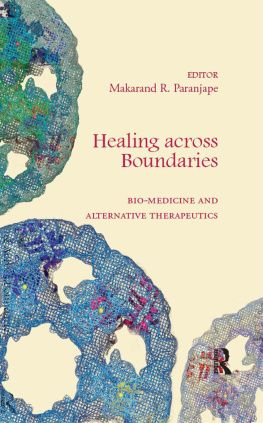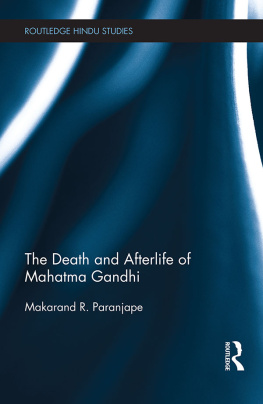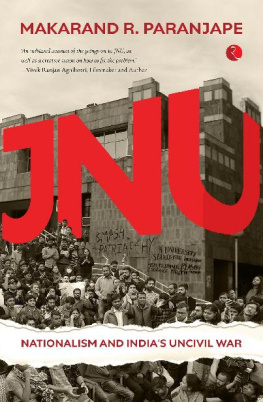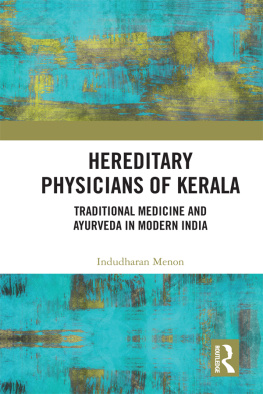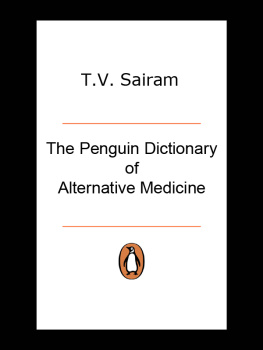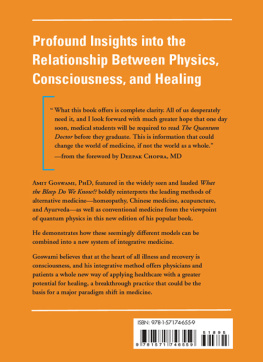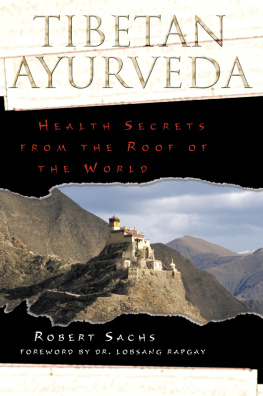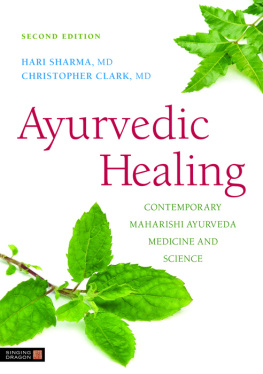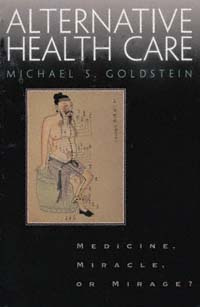
Healing across Boundaries
This is a remarkable book on a remarkable topic. Optimal health of both the individual and the society is clearly dependent on contributions from a wide array of specialists, and Prof. Makarand Paranjape brings to us the views and opinions of not only distinguished medical practitioners and researchers, but also from luminaries in the field of psychology, philosophy, biology and social engineering. This stunning cast of contributors are responsible for the depth and breadth of topics covered, ranging from scientific temper to spirituality, from mindbody medicine to spiritual healing, from stress to siddha, and from ethics to economics. The book soars even higher by not trying to impose an unnatural harmony among the different viewpoints and come up with a common prescription. In an extremely endearing display of humility, the Editor aims to only provide a platform for a dialogue between practitioners on either side of the chasm. This book goes a long way in steering the debate from science versus spirituality to science and spirituality.
Dr A. J. Vinaya Simha
Professor of Endocrinology
Mayo Clinic, Rochester, Minnesota, USA
Healing across Boundaries
Bio-medicine and Alternative Therapeutics
Editor
Makarand R. Paranjape

First published 2014 in India
by Routledge
912 Tolstoy House, 1517 Tolstoy Marg, Connaught Place, New Delhi 110 001
Simultaneously published in the UK
by Routledge
2 Park Square, Milton Park, Abingdon, Oxon OX14 4RN
Routledge is an imprint of the Taylor & Francis Group, an informa business
2014 Makarand R. Paranjape
Typeset by
Glyph Graphics Private Limited
23, Khosla Complex
Vasundhara Enclave
Delhi 110 096
All rights reserved. No part of this book may be reproduced or utilised in any form or by any electronic, mechanical or other means, now known or hereafter invented, including photocopying and recording, or in any information storage and retrieval system without permission in writing from the publishers.
British Library Cataloguing-in-Publication Data
A catalogue record of this book is available from the British Library
ISBN 978-1-138-79597-6
For Lalita,
hoping that she will contribute to the art and science of healing across boundaries
Contents
A Conversation with Pushpa Mittra Bhargava and P. Ram Manohar
Makarand R. Paranjape
P. Ram Manohar
Ramesh Bijlani
O. P. Yadava
Roger Worthington
Suhita Chopra Chatterjee
Nilanjana Sanyal
Hartmut Scharfe
Anuradha Veeravalli
Piyali Palit
Asha Mukherjee
Makarand R. Paranjape
Health in the 21st Century: Minding the Gap!
O ver the last 150 years, bio-medical science has revolutionised our ability to recognise and combat disease, extending our life spans and maintaining fit and healthy lifestyles well into old age. The evidence is all around us. In the West, infections are not the threat they used to be. Smallpox, tuberculosis, syphilis, measles, diphtheria, typhoid, cholera, and poliomyelitis are rare, thanks largely to the combined efforts of public health and antibiotics. Duodenal ulcers are uncommon. Heart attacks can be prevented and treated rapidly. There are many effective treatments for cancer. As long as doctors can establish a pathological diagnosis, they can institute a cure, or at least an effective treatment. Yet, despite these impressive advances, more and more people in Western countries regard themselves as ill and are frustrated that the promise of modern scientific medicine does not seem to help them.
The spectacular advances in medical science have exposed a vast underbelly of illnesses for which there are no distinct causes and no specific treatments. The so-called medically unexplained illnesses, the diseases doctors cannot cure, afflict about 35 per cent of people attending community clinics and at least 50 per cent of those attending specialist services in hospitals. These ailments have names; people always find names for what they do not understand, usually calling them syndromes. So, we have the chronic fatigue, irritable bowel, fibromyalgia, functional dyspepsia, and a myriad of other syndromes. But what is in a name for unexplained illnesses is merely an artifice by which doctors retain their threadbare mantle of control.
That is why I tend to make a distinction between diseases and illnesses. Diseases are objective, have well-defined pathologies, causes and specific treatments. Illnesses are subjective, related to what the patient experiences and therefore have much to do with diet, lifestyle and, more important than either of those, context and experience what is happening in the patients life. Diseases have mechanisms; illnesses have meaning. It is not always what is so that makes us ill, but what we think is so. That does not just involve the body, not even the mind and the body, but incorporates meaning as well. Mind, body and meaning; that, I would suggest, is the secular trinity of illness.
I prefer to use meaning in place of spirit or soul. In most Western countries, gone is the time when meaning inevitably led us to God, so the terms spirit and soul have lost the meaning they may once have had. What is spirituality, if not meaningfulness? When I am with a patient who has an unexplained illness, I listen with both my ears. My right ear is sifting the information, trying to catch any symptom or sign that might suggest specific pathology, while my left ear is listening to the story the patient is telling me and trying to discern connections clues that explain what the illness means and how it expresses what cannot be talked about and needs to be brought to mind.
But does that not underpin many traditional healing practices? First, understand your patient and then apply a meaningful remedy that connects with their particular dynamic. That, as I see it, is the art of healing and, as such, needs a completely different mind-set to the science of medicine.
Nonetheless, in a properly integrated modern practice of medicine, the two must work together. Just as we use our two hands, two eyes, two ears, we also need to use both sides of our brain our focused, analytic left brain and our integrative, narrative right brain to understand and heal our patients. Practising one in preference to the other and the method will be lopsided and unbalanced and the patient will inevitably fall over.
Therefore, it is refreshing to read this illuminating series of essays by such diverse panel of scholars, doctors, scientists, philosophers and healers, who have dared to go where few have gone before. This book moves us out of the safe prejudices of the mother ship to explore the hinterlands between bio-medicine and healing, science and meaning, mechanism and narrative, and by doing so, attain an understanding of what it is to be ill.
But that is only one side of the equation. Getting well is not just something the healer does, it is what those who are unwell do. The role of healers is to use all the understanding and method at their disposal to assist the ailing to help themselves. Bio-medicine places too much emphasis on applying methods to make people well, and so, like an overindulgent parent, spoils the patient by failing to empower their own capacity for healing. Governments in the West have recently caught up with the traditional notion of empowering self-management for long-term illness, but one suspects they see this more as a way of saving money than as enlightened means of maintaining the health of the nation.
Next page
